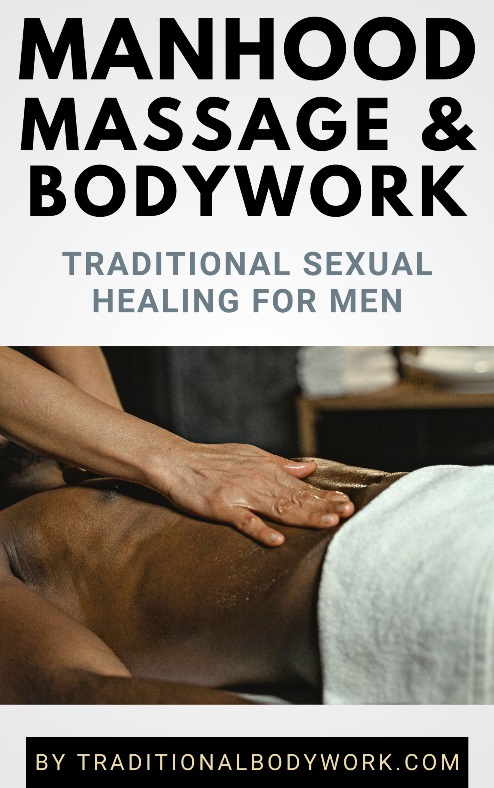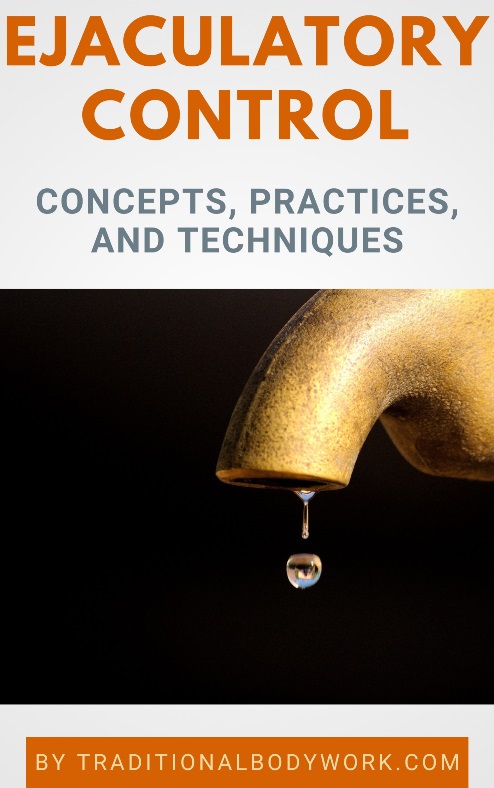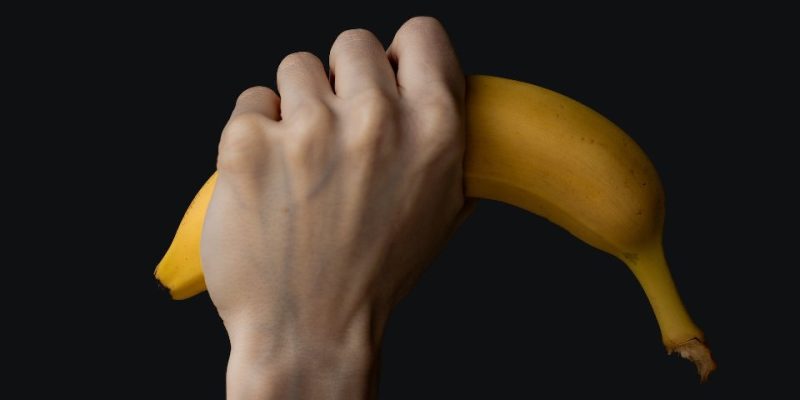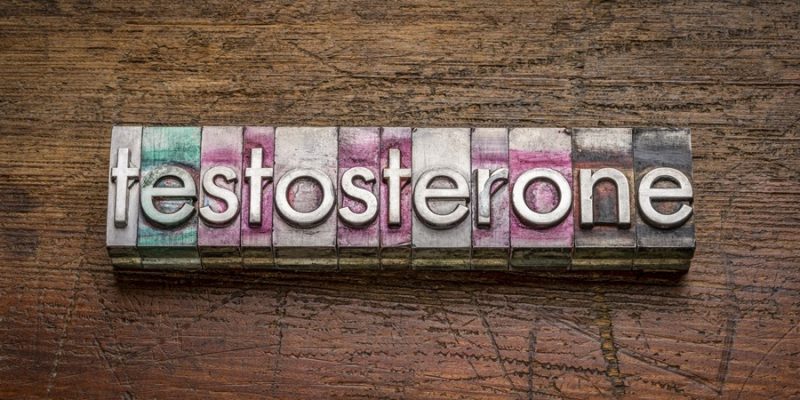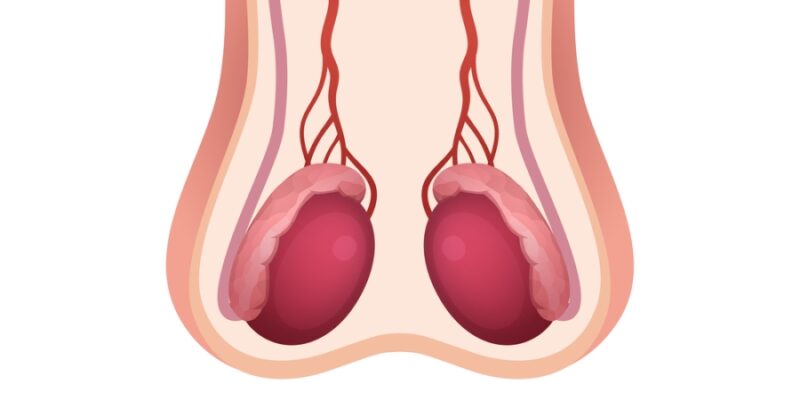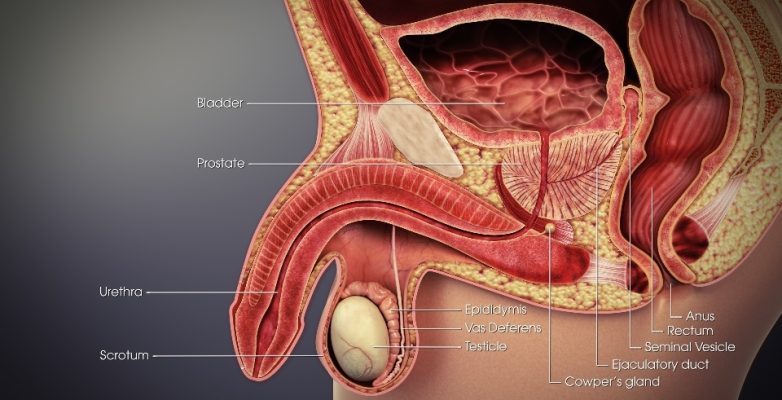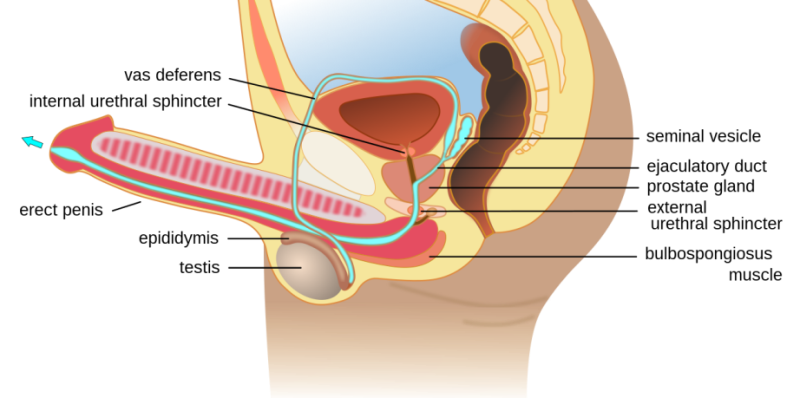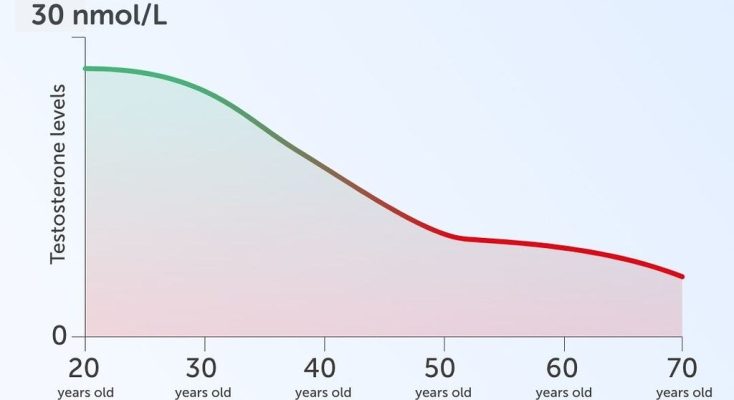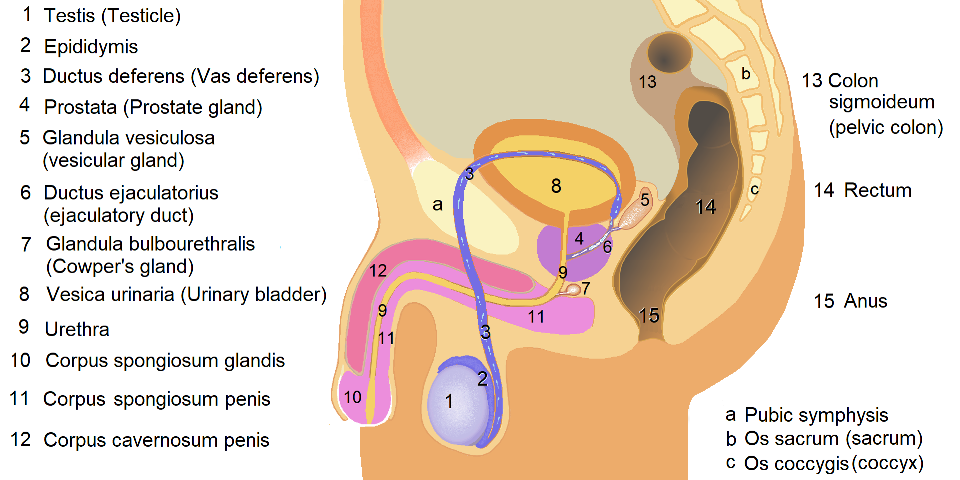
In a man, a testicle or testis (the plural form is testicles or testes) is the reproductive gland (a gland is an organ that excretes substances) that produces sperm and so-called androgens (a group of hormones), the latter primarily consisting of testosterone. In most cases, a man is born with two testicles.
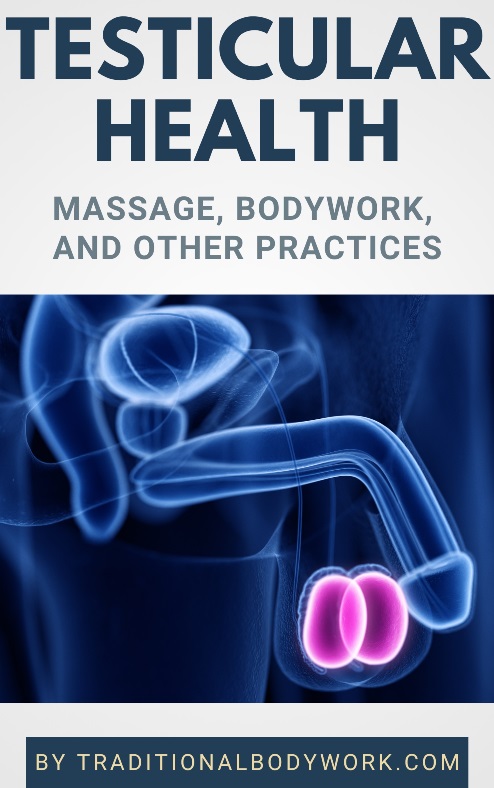
The testicles (also colloquially called “balls,” “nuts” or “cojones”) are two oval shaped glands located within the scrotum, which is a sac (or pouch) of skin that hangs from the body at the front of the abdominal wall, between the legs.
Both testicles are about the same size, but it’s common for one to be slightly bigger than the other, or that one testicle hangs lower than the other. The temperature of the testes is about two to three degrees Celsius lower (around 34°Celsius) than the body temperature (37°Celsius), creating the most suitable temperature for sperm production.
The scrotum wall protects the testicles, but additionally boasts numerous nerve endings that usually make it sensitive to the touch. Characteristically, the scrotum will tighten during penile erection and when exposed to cold temperatures.
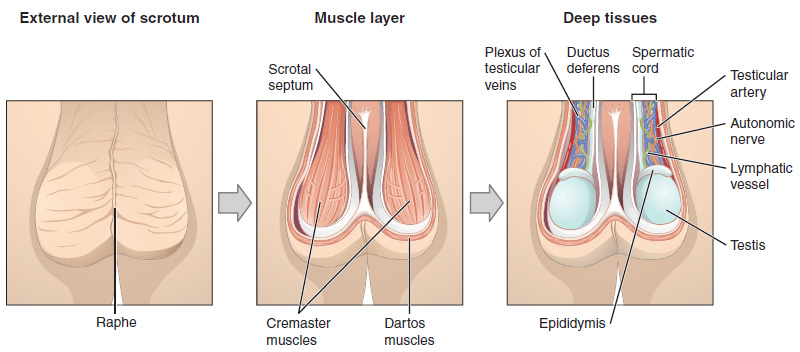
The testicles are connected to the inside of the body by the spermatic cord. Each cord contains nerves and blood vessels and the vas deferens (also called ductus deferens or sperm duct), the latter being the tube that moves sperm from the epididymis (meanderingly coiled duct structure on top and behind the testis) to the penis (traveling via the prostate and urethra), where it can leave the body as semen.
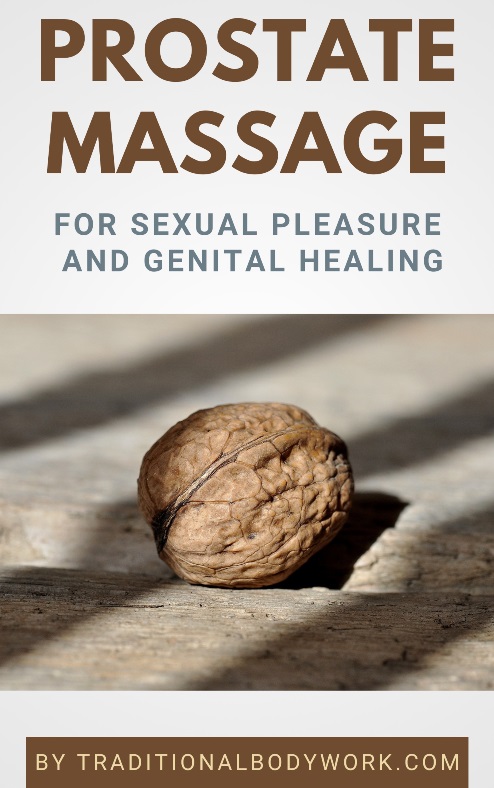
Mind that semen is a mix of prostatic fluid, seminal fluid (excreted by the seminal vesicles i.e. vesicular glands), and sperm cells.
The sperm cells (colloquially simply called sperm) are created in the testes and are male reproductive cells essential for procreation, otherwise said: to having a baby. Sperm cells fertilize a female reproductive cell, the latter known as an oocyte or egg.
Testosterone is an important sex hormone in men and plays a vital role in the development of the male reproductive organs, but it’s also responsible for things like muscle growth, bone mass, and body hair. Moreover, testosterone is involved in creating and maintaining overall physical, emotional, and sexual wellbeing.

